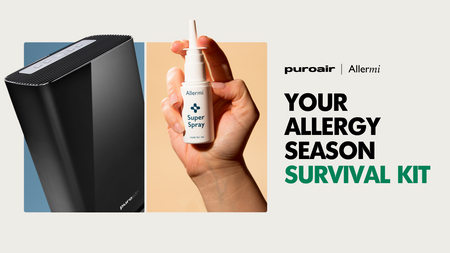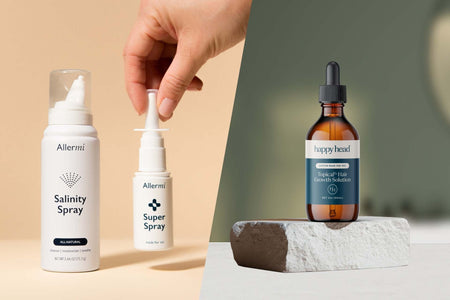Overview:
This multicenter, randomized, double-blind, placebo-controlled study evaluated the efficacy and safety of triamcinolone acetonide (TAA) aqueous nasal spray in 178 patients with perennial allergic rhinitis (PAR). Participants were treated once daily for 4 weeks with either TAA (220 mcg) or placebo. Symptom changes were tracked using patient diaries, and efficacy was assessed by both patients and physicians.
The Takeaways:
-
TAA nasal spray significantly improved symptoms of nasal stuffiness, sneezing, nasal discharge, nasal index, and nasal itching compared to placebo (P < 0.05).
-
Sneezing improved as early as day 1 (within 12–16 hours), and nasal index scores showed statistically significant improvement by day 3 (P = 0.009).
-
At the end of the study, 65% of patients and 66% of physicians rated the treatment as greatly or somewhat improved vs 48% in the placebo group.
-
The treatment was well tolerated with only mild side effects, and there were no significant changes in vital signs or lab parameters.
Why It Matters:
This study reinforces that triamcinolone is an effective, safe, and fast-acting intranasal corticosteroid for perennial allergic rhinitis. Improvements in symptoms were not only statistically significant but also clinically meaningful, with relief beginning almost immediately and continuing over the course of treatment. Its tolerability further supports its use for both short- and long-term management.
The Link to Allermi:
Allermi’s nasal sprays include triamcinolone as a trusted corticosteroid ingredient to help patients with persistent allergy symptoms. This study supports Allermi’s data-driven strategy of using clinically proven corticosteroids to reduce inflammation, congestion, and irritation in allergic rhinitis. With rapid onset, strong efficacy, and minimal side effects, triamcinolone plays a key role in Allermi’s mission to deliver effective, personalized nasal care.
For more details, refer to the full study: Triamcinolone acetonide aqueous nasal spray for the treatment of patients with perennial allergic rhinitis








